Wisdom can be learned. But it cannot be taught
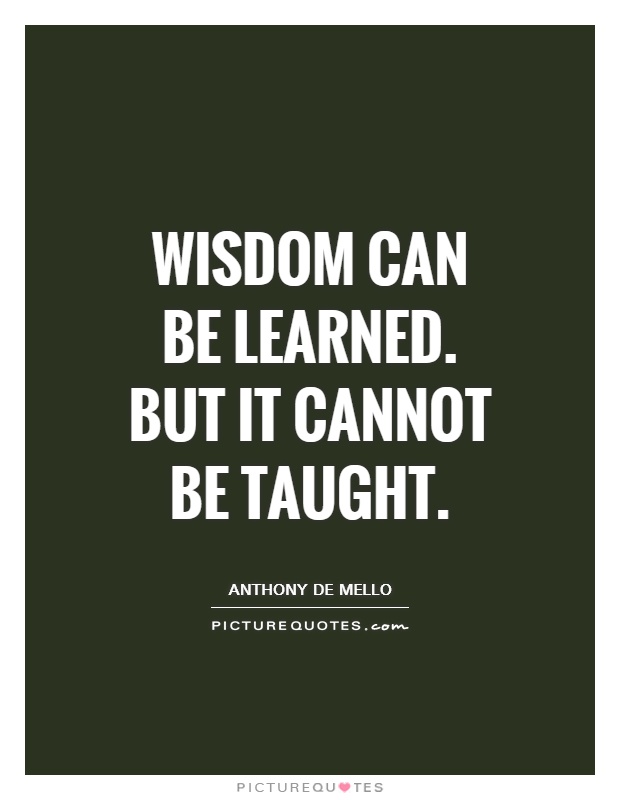
Wisdom can be learned. But it cannot be taught
Anthony de Mello, a Jesuit priest and spiritual teacher, was known for his profound insights into human nature and the nature of wisdom. He often spoke about the importance of self-discovery and inner transformation as the keys to true wisdom. In the context of de Mello's teachings, the idea that wisdom can be learned but not taught takes on a deeper meaning.De Mello believed that wisdom is not something that can be imparted from one person to another through traditional teaching methods. Instead, he saw wisdom as a personal journey of self-discovery and self-realization. In his book "Awareness: The Perils and Opportunities of Reality," de Mello writes, "Wisdom cannot be taught. Wisdom can only be learned. And it cannot be learned in the abstract, through concepts and ideas. It can only be learned through direct experience, through seeing things as they truly are."
For de Mello, true wisdom comes from a deep understanding of oneself and the world around us. It is not something that can be acquired through intellectual knowledge or external teachings. Instead, wisdom is a process of inner growth and transformation that requires us to question our beliefs, challenge our assumptions, and confront our fears.
In his teachings, de Mello often used parables and stories to illustrate the importance of self-awareness and mindfulness in the pursuit of wisdom. He believed that by cultivating a sense of inner peace and clarity, we can tap into a deeper source of wisdom that lies within us.
De Mello's teachings emphasize the importance of living in the present moment and being fully aware of our thoughts, emotions, and actions. He believed that true wisdom comes from a place of inner stillness and acceptance, rather than from external sources of knowledge or authority.
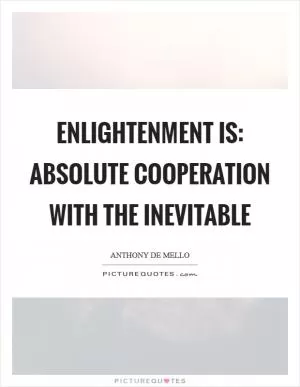
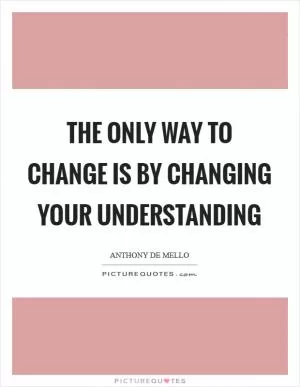


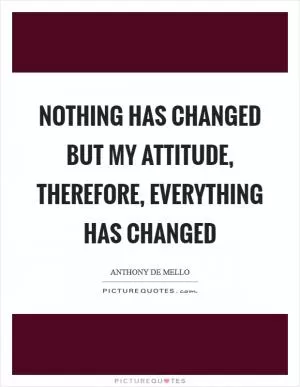
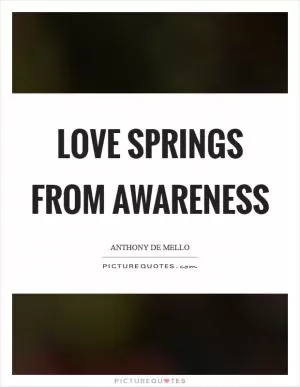
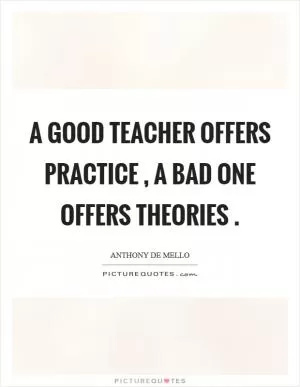
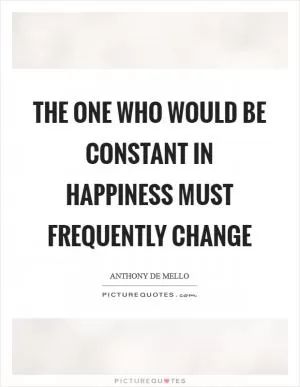
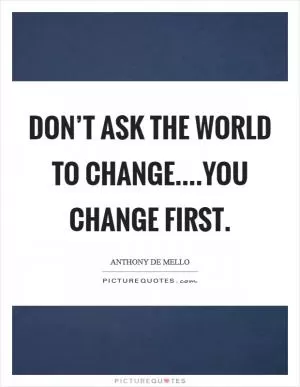

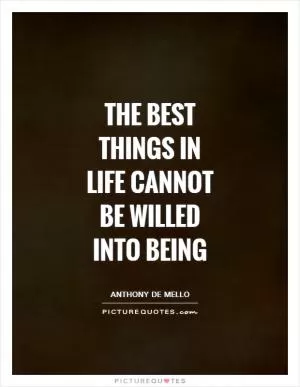
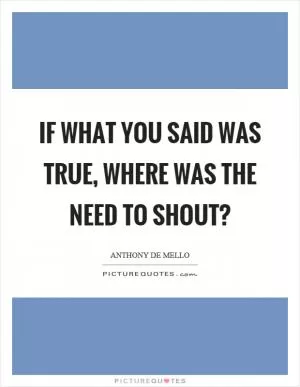
 Friendship Quotes
Friendship Quotes Love Quotes
Love Quotes Life Quotes
Life Quotes Funny Quotes
Funny Quotes Motivational Quotes
Motivational Quotes Inspirational Quotes
Inspirational Quotes